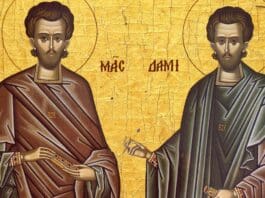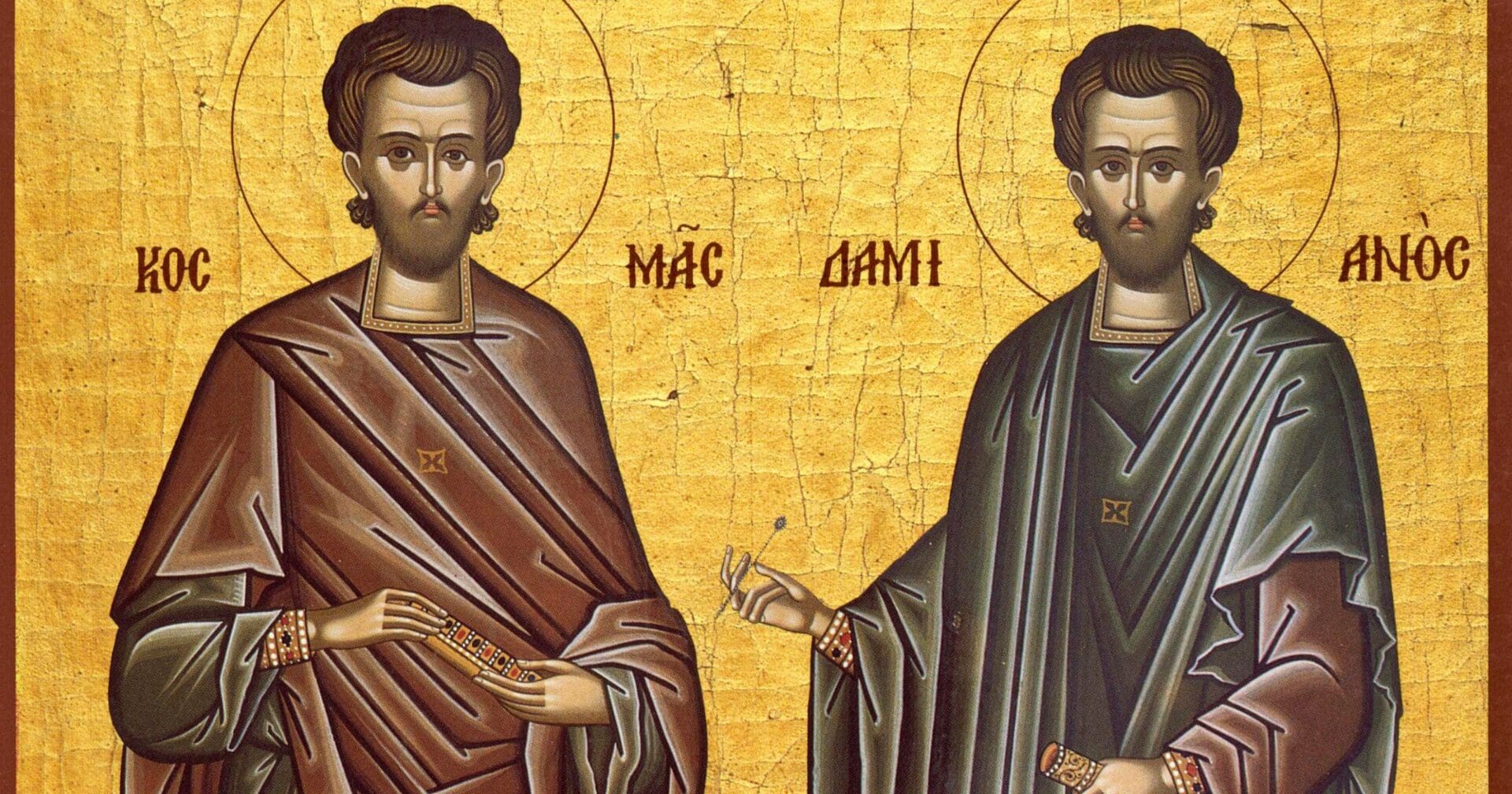
Saints Cosmas & Damian, twin brothers from Arabia, are celebrated early Christian martyrs renowned for their dedication to healing in the port town of Aegea (present-day Ayas) located in the Gulf of Issus, then part of the Roman province of Syria.
Their refusal to charge for their medical services earned them the moniker “anargyroi,” or “The Silverless.” This act of selflessness reportedly converted many to Christianity.
During Emperor Diocletian’s reign, when Christians were heavily persecuted, these brothers faced arrest on the orders of the Cilician Prefect, Lysias. Despite enduring extreme torture, including crucifixion, stoning, and being shot with arrows, they remained unwavering in their faith. They ultimately met their end by beheading. Their younger brothers – Anthimus, Leontius, and Euprepius – who were always by their side, also shared in this martyrdom.
One of their most notable miracles was the transplantation of a leg from a deceased Ethiopian to replace a man’s diseased limb. This pious tradition has been depicted in numerous artworks over the ages.
Recognized as the patron saints of physicians and surgeons, they are mentioned in the Canon of the Mass and the Litany of the Saints and are often depicted with symbols related to healthcare.
Their purported skulls hold a revered spot in Madrid’s convent of the Clares, having been there since 1581. These relics were generously donated by Maria, the daughter of the Holy Roman Emperor Charles V.
Editorial credit: hramikona / Shutterstock.com
The post Saints Cosmas & Damian appeared first on uCatholic.
Daily Reading
Thursday of the Second Week in Ordinary Time
Reading 1 Hebrews 7:25—8:6 Jesus is always able to save those who approach God through him, since he lives forever to make intercession for them. It was fitting that we…
Daily Meditation
Finding Solace in Jesus
Click here for daily readings “He had cured many, and, as a result, those who had diseases were pressing upon him to touch him” (Mk 3:10). This scene opens with…




